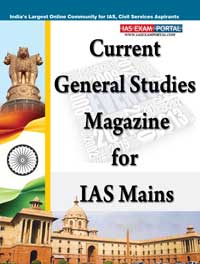Current General Studies Magazine: "Drought Relief" May 2016

Current General Studies Magazine (May 2016)
General Studies - III "Geography Based Article" (Drought Relief)
That scarcity of water and its poor quality plague many parts of India this year is widely acknowledged today. Yet it has taken the Supreme Court to call out the reluctance of some States to declare a drought while simultaneously decrying the Centre’s recourse to “federalism” as an excuse to avoid taking up the matter with these States. In the judgment, delivered on a writ petition filed by the non-governmental organisation Swaraj Abhiyan, the Supreme Court concluded that Bihar and Haryana had been remiss in not officially declaring a drought despite clear indications of water scarcity; also that Gujarat was late in its declaration made in April 2016. The governments of Bihar and Haryana had argued that a declaration of drought was not necessary as rainfall deficits had eased in many districts by July 2015. But the Supreme Court has pointed out that many districts in these States have since progressively suffered rainfall deficits till as late as October 2015. The court also said that steps taken by State governments for irrigation and foodgrain production, or the presence of perennial rivers (which the Bihar government has submitted as a factor), alone cannot determine whether there is a drought-like situation or not. It has directed the Centre to take proactive steps in drought mitigation as well as in assessment, planning and relief as mandated by the Disaster Management Act, 2005.
Drought is attributed to rainfall deficit in several States, suggesting that meteorological and natural factors are primarily responsible for the phenomenon. This, however, is an incomplete explanation. Water scarcity — in both surface and ground water — is also the result of failure to regulate water extraction, storage, wastage and patterns of use. The excessive use of deep borewells to extract groundwater has eroded the capacity of aquifers to replenish. Poor reservoir management has led to silt accumulation, among other issues limiting water storage. Lack of water harvesting and over-irrigation owing to cropping choices and patterns have depleted water tables. Preparation for drought and ipso facto for a deficit in annual rainfall must go beyond mitigation and include steps to address this man-made scarcity. This cannot be done without a coordinated effort at all levels of government. The Supreme Court has directed the Centre to constitute a National Disaster Response Force, establish a National Disaster Mitigation Fund, formulate a National Plan on mitigation and crisis management, and standardise the methodology for declaring a drought. If one sets aside the question of whether this is another case of judicial overreach, it is difficult to deny that this is a truly landmark judgment. By laying down a broad framework for dealing with such situations and firmly emphasising that the government cannot absolve itself from acting decisively, the manner in which we deal with drought in the future may change markedly, and for the better.

